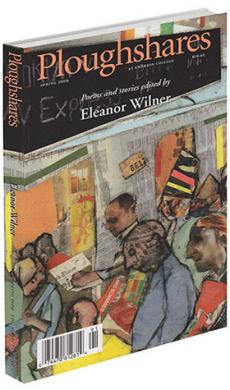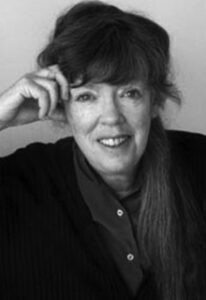rev. of Naming the World by Bret Anthony Johnston
Naming the World and Other Exercises for the Creative Writer, an anthology on writing edited by Bret Anthony Johnston (Random House): Bret Anthony Johnston has turned over the deck and fanned his cards, face-up, across the table. "I don’t believe in talent," he writes. "Truth be told, I’m not at all sure that writing can be taught. I am positive, though, that it can be learned."
In Naming the World and Other Exercises for the Creative Writer, Johnston, award-winning author of Corpus Christi: Stories (Random House), pushes aside assumption and grandiose notions of art (read: Art) to tackle the challenges of creative writing in a straightforward, no-nonsense manner. The Director of Creative Writing at Harvard University, Johnston is invested in questions of pedagogy, but he approaches the subject in a voice refreshingly free of academic jargon. As such, his book is instructive without being didactic, something between a textbook and a self-help book for aspiring writers.
Naming the World and Other Exercises for the Creative Writer is more than just exercises. Johnston has divided the book into eight sections. Five sections deal with elements of fiction and creative nonfiction: "Character," "Point of View and Tone," "Plot and Narrative," "Dialogue and Voice," and "Descriptive Language and Setting." These sections are bookended by chapters on beginning and revising. Every chapter contains about a dozen writing exercises, and each exercise is introduced by its designer. Finally, the book closes with eighteen pages of "Daily Warm-Ups," brief exercises meant to focus the writer before writing.
Johnston announces each section with smart, often funny stories from his own writing experience and contributes the occasional exercise. However, for much of the book, Johnston stands back and hands the lessons over to other distinguished writers. And the assemblage is impressive. Contributors include Joyce Carol Oates, Tom Robbins, Richard Bausch, Dorothy Allison, and Debra Spark. Johnston includes selections from younger writers like Steve Almond and Adam Johnson, as well as writers whose stars are on the rise, such as Jacob M. Appel, Tom Bligh, and Julia Fierro.
While Naming the World‘s exercises are strong and its organization helpful, the question must be asked: Do we really need another writing book? The answer can only be yes if the book does something better than those books that have come before it. Johnston’s compilation is no Writing Fiction, nor does it purport to be. Johnston does not include essays or stories for reading and imitation, as Janet Burroway does in the textbook that has become a staple of undergraduate and graduate creative writing courses nationwide. Instead, Johnston allows the book’s sixty-eight contributors to point readers in the direction of their favorite authors, stories, and books. And perhaps this is what earns Naming the World a resounding Yes in answer to the do-we-need-this-book debate. The myriad contributors, all of them living, working writers, take their craft seriously. As Johnston points out in his introduction, "I make no claims to fairness in my choice of contributors… I recruited my favorite writers and teachers of writing, those whose… examples have proven invaluable to my students over the years." Given its many points of view, Naming the World does not suffer from the insular advice one gets from classic instructional tomes like John Gardener’s The Art of Fiction. Here, the voices are varied and the lessons diverse.
Naming the World is certainly more user-friendly than most books on writing. The tone is rarely strident and is often heartening. The occasional contributor, however, seems not to have gotten the memo on tone, and it is only with these exercises that the book loses its footing. Instances like these, however, when an exercise feels more patronizing than encouraging, are thankfully few.
Johnston’s contributors were given no specific instructions, were asked only for commentary and exercises that would benefit apprentice writers. As a result, the careful reader will occasionally find contributors at odds with one another and even the book’s editor. One imagines Johnston as a teacher less interested in prescriptive instruction than in steering the aspiring writer toward advice—any advice—that ultimately cultivates "dedication… stubbornness… and discipline," those tools that will propel a writer forward. This is writing as "vocation… labor."
To return to Johnston’s distinction that writing can be learned, if not taught, the point is less glib than it sounds. If writing is labor, and the beginning writer is an apprentice laborer, then, as with any other vocation, the apprentice writer must learn by practicing the craft. This is the message of Naming the World. If you want to be a writer, you must first be your own best teacher. One comes away from Naming the World with an understanding that quality writing arises only from quality "’butt-in-chair time.’" Naming the World stays true to this principle, presenting the reader with a text composed primarily of writing exercises designed to help the reader become a stronger writer. The distinction Johnston makes is this: Reading Naming the World won’t make you a writer, but completing its warm-ups and exercises just may. —David James Poissant
David James Poissant’s stories have appeared in Playboy, The Chicago Tribune, Willow Springs, Redivider, The Chattahoochee Review, and in the anthologies Best New American Voices 2008 and New Stories from the South 2008. He is currently a Ph.D. candidate at the University of Cincinnati.

